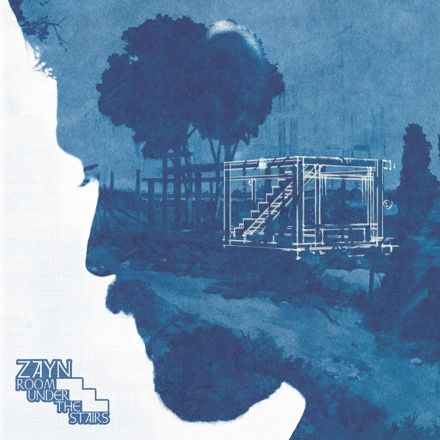Zayn Malik released his fourth studio album “Room Under the Stairs” on May 17. It is available on all streaming platforms, including Spotify and Apple Music. The album is a stark shift in genre for the renowned R&B singer and Malik embraces genuine self-reflection in his lyrics. Despite its vague and indefinite lyricism, the album beautifully represents a fresh start for Malik.
Malik became a father to a child with supermodel and ex-girlfriend Gigi Hadid in 2020. Since then, he has been out of the public eye, living on a farm in Pennsylvania and listening to music by acclaimed country singers Chris Stapleton and Willie Nelson.
Stapleton and Nelson’s influences on his music can be seen in “Room Under the Stairs.” Malik has left his R&B sound behind and relied heavily on acoustic guitars and authentic blues instrumentals in this album.
The singer has also turned towards more contemplative, confessional lyrics. He has always exuded an aura of mysteriousness, which has suited him well. In this album though, Malik takes his listeners on a journey through his mind, with the overarching theme of self-reflection prevailing throughout.
Malik has stated that he intended for “Room Under the Stairs” to have self-reflective lyrics.
“I think the intention behind the album fully is for the listener to get more insight on me personally as a human being,” Malik said in a video collage he posted on Instagram.
The first track of the album, “Dreamin,” introduces listeners to Malik’s reinvention. It combines his general sense of yearning with blues-rock. He elongates the letters “I” and “E” in the lyric “I’ve been dreamin’, feelin’ this way” to capture his internal desire for more.
The singer utilizes raw and soulful vocals with acoustic guitar in the following track, “What I Am.” The song explores themes of authenticity, vulnerability, self-acceptance and the complexities of interpersonal relationships. It is a reflection on the struggles that come with embracing one’s true self, as well as the sense of liberation it allows for.
Malik seeks authenticity and struggles to find solid ground on track six, “How It Feels.” He repeats the phrase “breaking my heart” as the piano plays away to his pain. The song ends with the tenderness of the singer’s voice releasing its grip on the track and floating away.
Vague and escapist lyricism, however, does not always match well with the authenticity and sensitivity that one would expect for a country-influenced album. If Malik truly wants to connect with his listeners through his music, he needs to have more direct lyrics with clear meanings. Nonetheless, attempting to blend the two is a creative challenge; his attempt at conquering it should be appreciated.
Track seven, “Stardust,” and track 13, “Something in the Water,” are the only tracks on the album that lean into the pop genre and, consequently, are the most fun. “Something in the Water” blends a distorted chorus with a folksier, guitar-heavy sound. “Stardust” is a mid-tempo song that features Malik’s familiar vocal warmth and nicely crafted hooks.
The closing track, “Fuchsia Sea,” returns to the smooth and sultry vocal deliveries of Malik’s previous projects. It includes a wall of harmonies not heard previously on the album. The wounding lyric “How can you break when you’re broken to begin with?” feels genuine and personal, ending the album on a deeply passionate note.
Although it might take fans more than a few listens to connect with the album as a whole, the boldness of the material’s experimentation is worth putting in the effort. Malik’s step out of his comfort zone as an artist makes it all the more interesting to see where his musical journey will bring him next.
Overall, “Room Under the Stairs” explores country music and features the overarching theme of self-reflectance. Listeners can hear love, loss and pain in Malik’s voice across each track. While his lyrics are often indirect and have unclear meanings, the album definitely marks the beginning of an exciting new chapter in the singer’s career.







![[Review] ‘The Inheritance Games’ series warms readers’ hearts](https://eagleeye.news/wp-content/uploads/2025/01/Screen-Shot-2025-01-08-at-8.37.08-AM.png)




